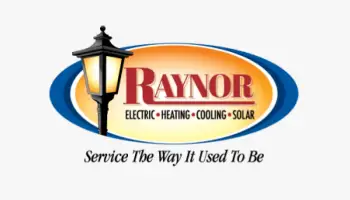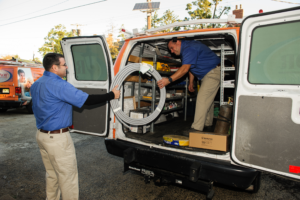A heating failure can be more than inconvenient and uncomfortable – it can turn dangerous quickly during the coldest parts of the winter. Understanding what to look for and the signs of an impending heating system failure can save you from a breakdown and the cost of emergency repairs. So what do you do to prevent a heating failure?
Warning Signs
Strange Noises
Unusual sounds like grinding or rattling coming from your furnace could indicate motor or blower wheel assembly issues. Turn off the power immediately and consult an HVAC technician for an emergency heating repair.
Cycling On and Off
Frequent cycling may suggest insufficient airflow, leading to high utility bills. Clearing out ducts and checking the furnace or boiler to ensure there are no blockages to avoid further complications.
Inadequate Heat
If your vents blow either too warm or cold air, it could be related to problems with airflow or the furnace’s airflow sensor. Immediate attention is necessary to prevent a complete breakdown.
Leaking Water
Water leakage suggests a leaky drain pan or a cracked heat exchanger. These issues require immediate heater repair to prevent further damage or even electrical shocks.
A cracked heat exchanger can be a life-threatening issue. The heat exchanger holds carbon monoxide (CO), and a crack will allow the gas to escape. CO is an odorless, colorless, deadly gas that requires immediate attention from a professional.
Inconsistent Temperatures
If your home is never the right temperature, it may indicate problems with airflow or the heat exchanger. Prompt inspection by an HVAC professional is essential.
Unexpected Rise in Bills
A significant increase in heating bills without a corresponding increase in heating activity can indicate that your home needs heater repairs sooner rather than later.
Tips To Prevent Furnace Failure
Protect Wiring and Controls
Keep pets and children away from exposed wiring or controls to prevent damage. Electrical components can be hazardous if damaged.
Annual Checkups
Schedule furnace services at least once a year before winter to ensure optimal operation, efficiency, and safety.
Inspect Flues, Vents, and Ducts
Check on these components regularly to catch potential issues early, preventing breakdowns and expensive repairs.
Regularly Change the Filters
Maintain airflow by changing the air filters regularly, ensuring peak performance, efficiency, and safety. In general, these should be changed once every three months, but that could vary based on allergies, pets, and other environmental factors.
What To Do If Your Heating System Fails
Power Failure
If you experience a power failure with your furnace, wait for 5-10 minutes before attempting a restart. If it still fails to start, consult a professional.
Smell Smoke or Burning
Shut off the power immediately if you smell smoke or notice signs of burning. Contact an expert for assistance.
Stay Away from Damaged Units
Even during a power outage, avoid damaged units. Leave repairs to a professional technician.
Trust Raynor Services for Emergency Heating Repairs
If you find yourself dealing with a heating system emergency, trust Raynor Services to provide prompt and reliable emergency heating repairs. Our licensed and experienced HVAC technicians provide same-day availability to address heating emergencies and make sure your home stays warm and comfortable. Don’t let a heating failure leave you in the cold—reach out to Raynor Services. Contact us today for heating services and comprehensive HVAC repairs.



